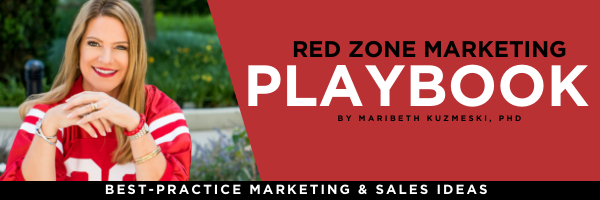AI can be a powerful tool for financial advisors to enhance their marketing efforts and better serve their clients. Here are some ways AI can be utilized in marketing for financial advisors:
- Personalized Content Creation: AI can help generate personalized content such as newsletters, blog posts, or social media updates tailored to interests and needs of clients. Try asking ChatGPT for something like this: “create a blog about interesting ways to enjoy retirement” or “write a blog about unique ways to save money on travel in retirement.”
- Predictive Analytics: Many of the large firms are now incorporating AI into their CRM programs to predict future market trends and client needs. Salesforce and HubSpot are off the shelf programs that have AI options to help predict behavioral trends. Financial advisors can use this information to proactively offer relevant services or products to their clients like retirement income planning, financial planning, insurance, estate planning and specific tax mitigation strategies.
- Lead Generation and Qualification: AI-powered tools incorporated with CRM programs can help financial advisors identify potential leads from various sources such as social media, websites, or email campaigns. These tools can also assess the quality of leads based on predefined criteria, allowing advisors to focus their efforts on prospects with the highest potential. Check out the power of programs like ActiveCampaign.
- Chatbots and Virtual Assistants: AI-powered chatbots can provide instant support to clients and prospects by answering common questions, scheduling appointments, or providing basic financial advice. Virtual assistants can also handle routine administrative tasks, freeing up advisors’ time for more strategic activities.
- Customer Segmentation: AI algorithms can segment clients into different groups based on factors such as demographics, behavior, or investment preferences. This segmentation allows advisors to tailor their marketing messages and offerings to specific client segments, increasing engagement and conversion rates.
- Behavioral Analysis: AI can analyze client interactions with marketing materials, such as email open rates or website visits, to gain insights into client behavior and preferences. Advisors can use this information to refine their marketing strategies and deliver more targeted and effective campaigns.
- Risk Tolerance: AI-powered tools can analyze a large amount of data based on client inputs and a risk tolerance questionnaire and then create a fact-based analysis of risk. Financial advisors can use these insights to make more informed decisions and provide better risk-managed portfolios for their clients.
- Client Retention and Engagement: AI can analyze client sentiment and engagement metrics with CRM programs to identify clients who may be at risk of leaving or reducing their engagement with the advisor. Advisors can then take proactive steps to address their concerns and strengthen client relationships.
- Continuous Learning and Improvement: AI algorithms can learn from past marketing campaigns and client interactions to continuously refine and improve marketing strategies over time, maximizing the effectiveness of marketing efforts.
By leveraging AI in these ways, financial advisors can enhance their marketing efforts, streamline operations, and ultimately provide better communications and service to their clients.
Maribeth Kuzmeski, PhD, President of Red Zone Marketing, is a marketing strategist, advisor to financial services companies, bestselling author of nine books, and a professional speaker rated as a Top 25 C-Suite Speaker as seen in Meetings & Conventions Magazine. She speaks on topics including marketing, branding, sales, and customer service.
Recent Articles:
Contrarian Networking Strategy – Part 4
Contrarian Networking Strategy – Part 3



